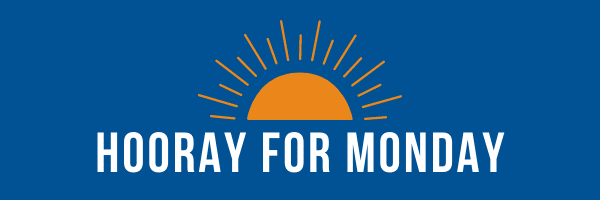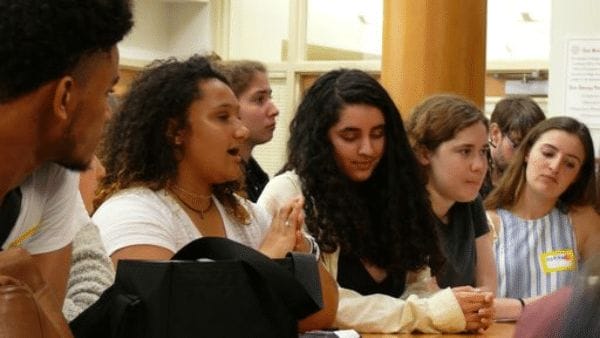June 21, 2021
By Aleta Margolis, Founder and President, Center for Inspired Teaching
Hooray for Monday is a weekly blog filled with questions, ideas, reflections, and actions we can all take to remodel the school experience for students.

When I taught sixth grade, in the early 1990s, I designed an activity to teach my students how natural selection works: each student became a finch and was assigned a round or pointy beak (represented by a piece of construction paper in the shape of a circle or triangle), and then had to face a variety of challenges (no food source other than tiny bugs that hide inside tree bark, etc.) and experience the effects on the gene pool. Through this interactive biology lesson, students learned how traits are selected for or against over time, as part of the process of evolution.
I had invited my principal to observe the lesson. After it ended, she announced: “Remember, evolution is only a theory!” She later explained to me that she was concerned students might tell their parents they had learned evolution in school, and that parents might become upset that I’d taught their children about this “controversial” topic.
Her words sparked a whole new lesson in my classroom, this time a history lesson on the famous 1925 Scopes Trial, in which a public school science teacher in Tennessee was prosecuted for teaching evolution to his students.

Today, in 2021, at least 25 states have introduced legislation that would prevent public school teachers from teaching critical race theory, or any so-called “controversial” approach that acknowledges the role systemic racism, sexism, and other forms of oppression play in our nation’s history. On June 11, thousands of teachers gathered to push back against these laws, standing up for the right to teach students about the complexities of our nation’s history.
Everything we do at Inspired Teaching is based on the belief that teachers should be Instigators of Thought who teach students how to think, instead of doing the thinking for them. What does this mean as we navigate questions around what does and does not belong in a school curriculum? Who should decide what kids are exposed to, or learn about in school? And how can we ensure teachers are protected and supported when they engage their students in studying the important and complex issues of our times?
The late great Ted Sizer, one of the greatest progressive educators of the twentieth century, believed the purpose of school is to teach students to “use their minds well.” When teachers teach students to use their minds well, teachers take on the role of Instigator of Thought.
Teachers who are Instigators of Thought:
-
Do their research, and make their research process transparent so students know how to do research too.
-
Teach critical media literacy, which includes embracing a learning stance and exposing learners to reliable and varied news sources – including those that challenge and reinforce their personal viewpoints.
-
Have complicated conversations with students and teach them how to talk with one another about tough topics.
-
Ask, don’t tell. They ask students to draw their own conclusions and support those conclusions with evidence from reliable news sources. Then they invite students to listen to their classmates who’ve reached similar conclusions, and to those who’ve reached different ones.
This is the kind of honest, engaging learning environment students need and deserve. However, we can’t ask teachers to risk their job security to engage in good teaching.
To those Hooray For Monday readers who are school and district leaders, parents, and policymakers: I invite you to share your voice in support of teachers who are willing to take on the role of Instigator of Thought, and to change the landscape so that students and teachers can engage thoughtfully and professionally in analyzing the issues of our times. Teachers, I invite you to share this post with your school and district leaders and other key decision-makers in your community and encourage them to support true inquiry-based teaching and learning.
Knowledge and understanding are what move us forward as a society. Education rooted in our ever-evolving understanding of the past and present is key to that forward momentum. We must support the educators who teach the truth and open our eyes to who we are and what we can be.
